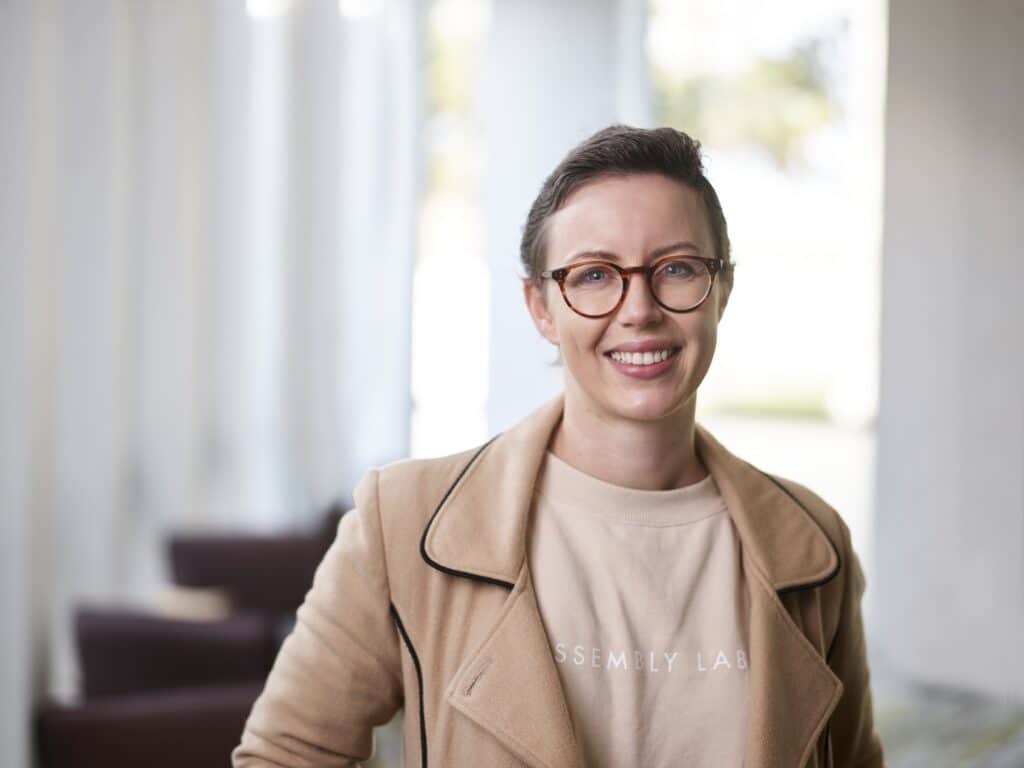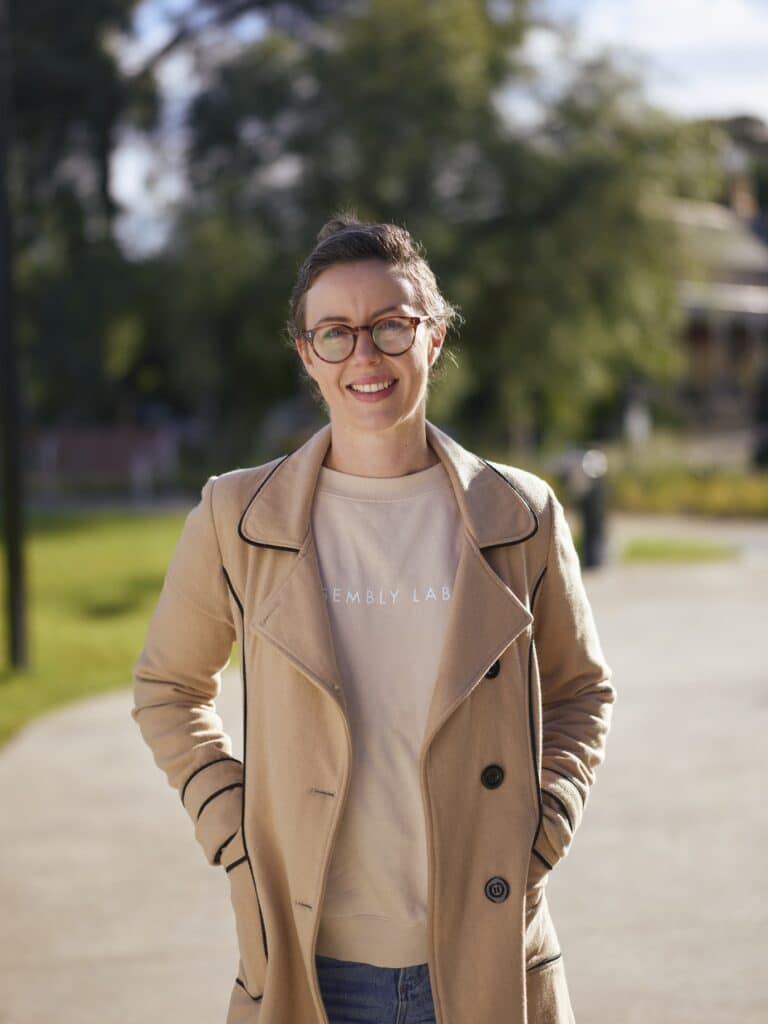When Laura McCambridge was first diagnosed with breast cancer at the age of 31, she felt very “out of control”.
McCambridge had no family history and says that when her GP called to give her the news, she was at work and her initial thoughts were, “Are you joking” and “I don’t really have time for this”.
Then, when her doctor mentioned the prospect of undergoing chemotherapy, McCambridge’s mind jumped to questions of fertility.
Chemotherapy and some hormone blocking treatment for breast cancer can make it more difficult to conceive.
Before starting treatment, McCambridge chose to freeze her eggs as an insurance policy for having children some time in the future, but says “it was a crazy time to be thinking about that kind of thing because you just want to start treatment and get going”.

For young women in the thick of their careers or thinking about starting a family, breast cancer can be life-altering.
Premature menopause, fertility and sexuality issues and the impact of breast cancer on caring for young children, education and careers are all experiences that can leave young women with higher levels of distress following a breast cancer diagnosis.
It’s important to note that when the medical community refers to ‘young women’ with breast cancer, they’re talking about those who are premenopausal or 40 years and younger.
Professor of Medicine at Harvard Medical School and Vice Chair of Medical Oncology at the Dana Farber Cancer Institute, Dr. Ann Partridge says the reason this cut-off was chosen is that “historically, the women diagnosed under 40 seem to have fared the worst on average in terms of recurrence,” she says, adding that this is changing with better research.
Dr. Partridge also says that the age requirement for who is considered a ‘young woman with breast cancer’ spans into the unique issues faced by those under the age of 40, such as fertility.
Approximately 7 per cent of breast cancers diagnosed in Australia are in women in this age group, which equates to approximately 1,000 women each year. And unfortunately, the numbers seem to be rising.
Risk factors
“One of the reasons we think breast cancer in young women is going up is because we’re delaying child bearing,” says Dr. Partridge, adding that not having children is a risk factor for breast cancer.
She says this delay in having children is “for good societal reasons like going to school and starting careers, but that does seem to be a contribution to higher rates in our younger patients.”
Hormone treatment or contraceptives are another risk factor that patients may ask their medical team about, however, Associate Professor Nicolas Wilcken from the University of Sydney and Board Director at Breast Cancer Trials, says the benefits outweigh the risks.
“Oral contraceptives very slightly increase the risk,” says Dr. Wilcken. “And that is massively overwhelmed by all the good things that they do such as decreasing your risk of unwanted pregnancy, and also massively decreasing your risk of ovarian cancer.”
As for what decreases the risk of breast cancer in young women, Dr. Holly Keane, a breast surgical oncologist at the Peter MaCallum Cancer Centre and the Royal Women’s Hospital Melbourne, recommends patients exercise at moderate to high intensity at least 3 times a week, maintain a healthy weight level and avoid excessive alcohol consumption.
Symptoms and treatment side effects
“No one is too young to get breast cancer,” says Dr. Partridge, adding that it’s important for young women to check their breasts, be aware of their personal risk factors and consult with their doctor.
Some of the symptoms Dr. Partridge recommends patients look out for are any lumps or bumps, skin changes, rashes, swelling in your arms, nipple discharge and pain in the breasts, even though this is more rare.
Treatment side effects in young women with breast cancer can include menopausal issues, decreased fertility, weight gain, changes in libido and hair loss. Young women might also need to undergo a mastectomy.
Clinical Psychologist Associate Professor Lesley Stafford says these kinds of side effects can be unpleasant for anyone but that they can be “particularly unpleasant for a person who’s in the prime of their youth, establishing relationships”.
Fear of recurrence
One of the most undermet needs of breast cancer in young women is support for the fear of recurrence, says Stafford.
She reminds patients that it’s quite normal to have this fear but that it’s important to try to stop yourself from catastrophising. Being mindful, unplugging from social media and seeking support are all helpful things to do.
Having finished her breast cancer treatment, McCambridge says “I feel like I’m definitely on the other side of it, but there’s always that fear of recurrence”.
It’s a mentality that she says has been especially hard to navigate over the past year but that she’s working to improve. Having a supportive partner, family and being able to exercise more after treatment are all things that she’s grateful to be able to lean on.
“It sounds so cliche but just take each day as it comes,” McCambridge says to any young woman having to experience breast cancer. “Focus on what you’re doing at the moment because it’s hard and you need a focused mentality.”

To watch the entire Q&A on this topic moderated by Author and Journalist Annabel Crabb, and to sign up to watch future Q&A’s, visit the Breast Cancer Trials website at: www.breastcancertrials.org.au/qa-events/

